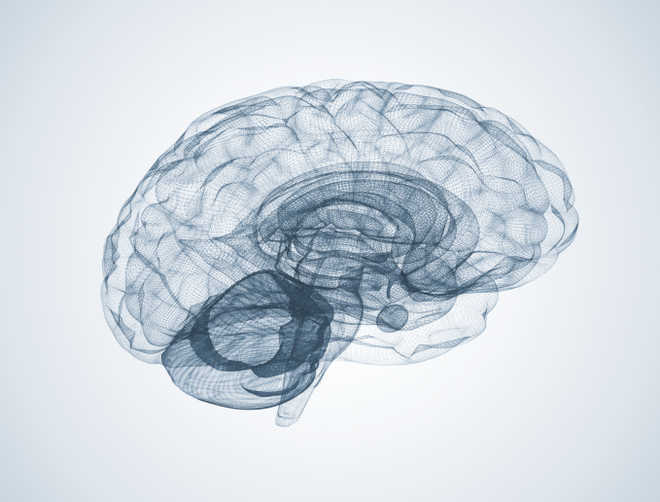
Study identifies how COVID-19 linked to Alzheimer’s disease-like cognitive impairment
Washington, June 11
A new Cleveland clinic-led study has identified mechanisms by which COVID-19 can lead to Alzheimer’s disease-like dementia.
The findings, published in Alzheimer’s Research and Therapy, indicate an overlap between COVID-19 and brain changes common in Alzheimer’s and may help inform risk management and therapeutic strategies for COVID-19-associated cognitive impairment.
Reports of neurological complications in COVID-19 patients and ‘long haulier’ patients whose symptoms persist after the infection clears are becoming more common, suggesting that SARS-CoV-2 (the virus that causes COVID-19) may have lasting effects on brain function. However, it is not yet well understood how the virus leads to neurological issues.
“While some studies suggest that SARS-CoV-2 infects brain cells directly, others found no evidence of the virus in the brain,” says Feixiong Cheng, PhD, assistant staff in Cleveland Clinic’s Genomic Medicine Institute and lead author on the study. “Identifying how COVID-19 and neurological problems are linked will be critical for developing effective preventive and therapeutic strategies to address the surge in neurocognitive impairments that we expect to see in the near future.”
In the study, the researchers harnessed artificial intelligence using existing datasets of patients with Alzheimer’s and COVID-19. They measured the proximity between SARS-CoV-2 host genes/proteins and those associated with several neurological diseases where closer proximity suggests related or shared disease pathways. The researchers also analyzed the genetic factors that enabled SARS-COV-2 to infect brain tissues and cells.
While researchers found little evidence that the virus targets the brain directly, they discovered close network relationships between the virus and genes/proteins associated with several neurological diseases, most notably Alzheimer’s, pointing to pathways by which COVID-19 could lead to Alzheimer’s disease-like dementia.
To explore this further, they investigated potential associations between COVID-19 and neuroinflammation and brain microvascular injury, which are both hallmarks of Alzheimer’s.
“We discovered that SARS-CoV-2 infection significantly altered Alzheimer’s markers implicated in brain inflammation and that certain viral entry factors are highly expressed in cells in the blood-brain barrier,” explained Dr Cheng. “These findings indicate that the virus may impact several genes or pathways involved in neuroinflammation and brain microvascular injury, which could lead to Alzheimer’s disease-like cognitive impairment.”
The researchers also found that individuals with the allele APOE E4/E4, the greatest genetic risk factor for Alzheimer’s, had decreased expression of antiviral defence genes, which could make these patients more susceptible to COVID-19.
“Ultimately, we hope to have paved the way for research that leads to testable and measurable biomarkers that can identify patients at the highest risk for neurological complications with COVID-19,” said Dr Cheng.
Dr Cheng and his team are now working to identify actionable biomarkers and new therapeutic targets for COVID-19-associated neurological issues in COVID long-hauliers using cutting-edge network medicine and artificial intelligence technologies. (ANI)
Stay connected with us on social media platform for instant update click here to join our Twitter, & Facebook
We are now on Telegram. Click here to join our channel (@TechiUpdate) and stay updated with the latest Technology headlines.
For all the latest Health News Click Here
For the latest news and updates, follow us on Google News.

